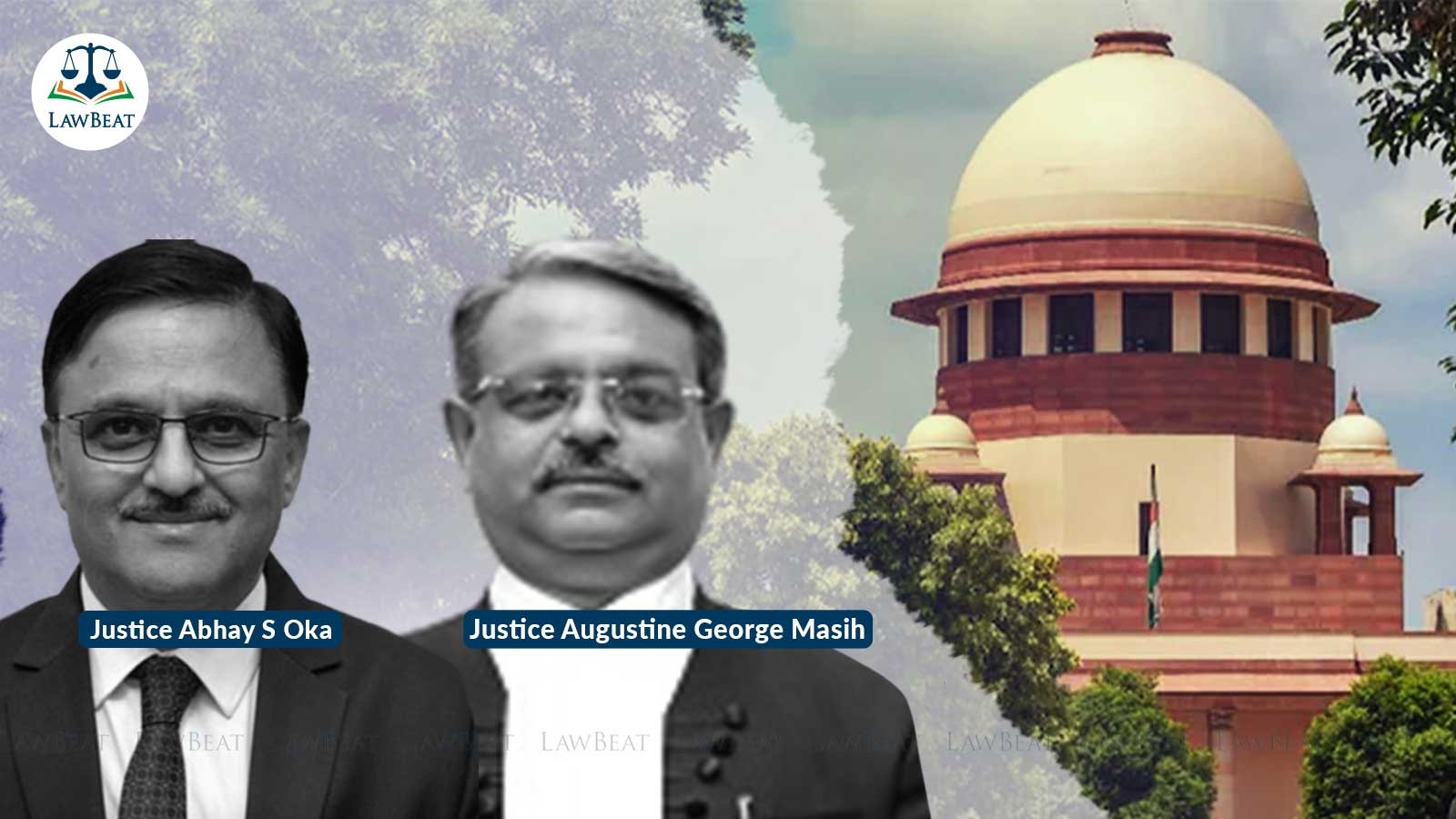Writ Jurisdiction Discretionary; HC Must Assess Conduct Before Granting Relief: SC

After noticing that the respondents have long absentation of more than 4 to 5 years, the High Court ought to have moulded the relief by not granting reinstatement, SC said
The Supreme Court has said that the writ jurisdiction under Article 226 of the Constitution is always discretionary and the conduct of the persons who invoke it, has to be taken into consideration by the High Court while granting reliefs.
A bench of Justices Abhay S Oka and Augustine George Masih modified the Allahabad High Court's order which set aside the 2010 termination of a large number of doctors by the Uttar Pradesh government due to their long abstention.
"We find that after noticing that the respondents have long absentation of more than 4 to 5 years, the High Court ought to have moulded the relief by not granting reinstatement. The writ jurisdiction under Article 226 of the Constitution of India is always discretionary and the conduct of the persons who invoke the jurisdiction has to be taken into consideration while granting reliefs," the bench said.
The respondents were doctors who were employed in the health service of the State of Uttar Pradesh. Considering the fact that large number of doctors remained absent from duty for few years, an order was made on May 3, 2010 by the Deputy Secretary, Government of Uttar Pradesh.
The state government took recourse to clause (b) of the second proviso to Article 311 (2) of the Constitution and terminated employment of doctors including respondents Dr Sudarshan Kumar and others.
The High Court by its impugned order on July 6, 2015 set aside the termination order, acting on writ appeals filed by the respondent doctors.
The High Court considered the decision of the Supreme Court in the case of Union of India & Another Vs Tulsiram Patel, (1985). After considering the said decision, a finding of fact was recorded in the impugned judgment of the High Court that clause (b) of the second proviso of Article 311(2) of the Constitution of India was not attracted.
The Uttar Pradesh government led by Additional Advocate General K Parameshwar contended that the order of termination established that the case was covered by clause (b) of the second proviso to Article 311(2) of the Constitution of India.
He said the High Court had ignored what was stated in the order of termination. He further submitted that it was impracticable to hold inquiry against a few thousand doctors who remained absent for years.
"Having perused the impugned order(s), we find that there was a specific challenge in the writ petitions filed by the respondents to the action of applying clause (b) of the second proviso to Article 311(2) of the Constitution of India. However, the submissions made by the appellants before the High Court as recorded in the impugned order(s) shows that the only argument canvassed by the appellants was that the respondents were absent for a long period and public interest was suffering. No other argument is recorded by the High Court," the bench noted.
The state counsel, however, maintained that very detailed submissions were made before the High Court justifying the applicability of clause (b) of the second proviso of Article 311(2), which allowed the authority empowered to dismiss or remove a person or to reduce him in rank without holding an inquiry after recording reasons in writing.
"If according to the appellants, submissions actually made were not noted by the High Court, the remedy of the appellants was before the High Court. However, that was not done. We may note here that impugned orders are of the year 2015," the bench said.
However, it found that as far as respondents doctors were concerned, the fact that they remained continuously absent for more than 4 to 5 years was an admitted fact.
It noted none of them had pleaded that after the termination order was passed on May 3, 2010, they continued to survive without either practicing medicine or without taking any other employment. They had not pleaded that they had no income from the date of termination.
In the facts and circumstances of the case, the bench opined, "We are of the view that interests of justice will be met if the appellants are directed to pay to the respondents a lumpsum compensation of Rs 2,50,000 each in lieu of reinstatement".
The court thus modified the High Court's order and directed the state government to pay compensation of Rs 2,50,000 each to the respondents within a period of three months from today.
"On their failure to pay the compensation to the respondents within a period of three months from today, interest will be payable on the said amount from today till the date of payment at the rate of 9% per annum," the bench ordered.
Case Title: State of UP & Ors Vs Dr Sudarshan Kumar
